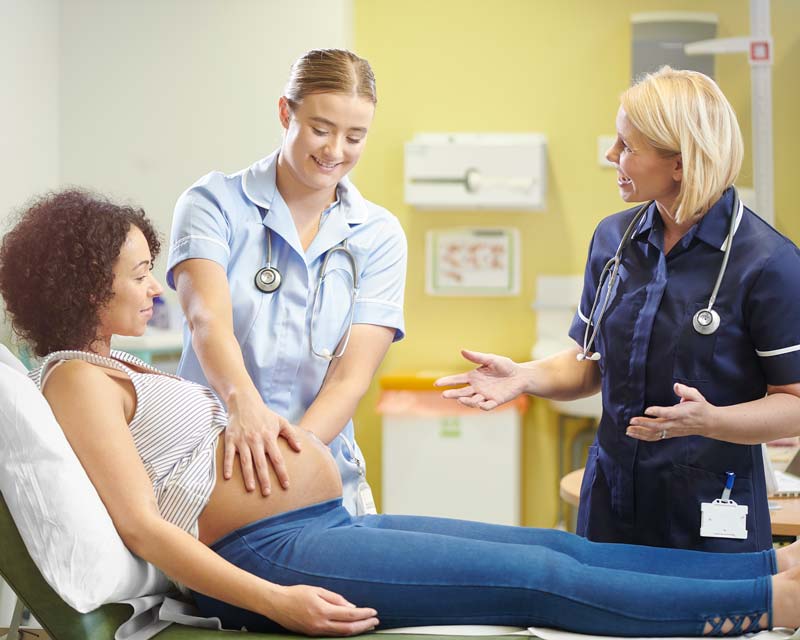
Researchers take next steps to understand COVID-19’s impact on people infected during pregnancy

The number of women using opioids and heroin during pregnancy has escalated dramatically. Between 2002 and 2012, the rates quadrupled, translating into potentially harmful effects for the expectant mothers and their unborn babies.
The Ohio State University Wexner Medical Center is responding to the crisis with an innovative clinic called Substance Abuse Treatment, Education and Prevention Program (STEPP).
Here, expectant women with addictions to drugs or alcohol receive high-risk obstetric care – along with medication-assisted treatment and counseling – on an inpatient or outpatient basis.
“We encourage women with addictions to seek comprehensive care to help themselves through pregnancy and after their babies are born,” says Kara Rood, MD, a specialist in maternal fetal medicine. “Pregnancy offers the opportunity for others living in the household to improve their lifestyles as well.”
To promote a healthy pregnancy and postpartum period, the STEPP clinic also provides mental health services and weekly education sessions.
Topics include:
Since its inception in 2013, the STEPP clinic has partnered with the Stable Cradle program at Maryhaven, central Ohio’s oldest and most comprehensive treatment center for individuals and families dealing with addiction. Providers with Ohio State Behavioral Health are involved, too.
STEPP also cares for expectant mothers with infectious diseases, often associated with illicit drug use.
Plans are underway to create a postpartum and parenting curriculum to expand care into the vulnerable postpartum period.